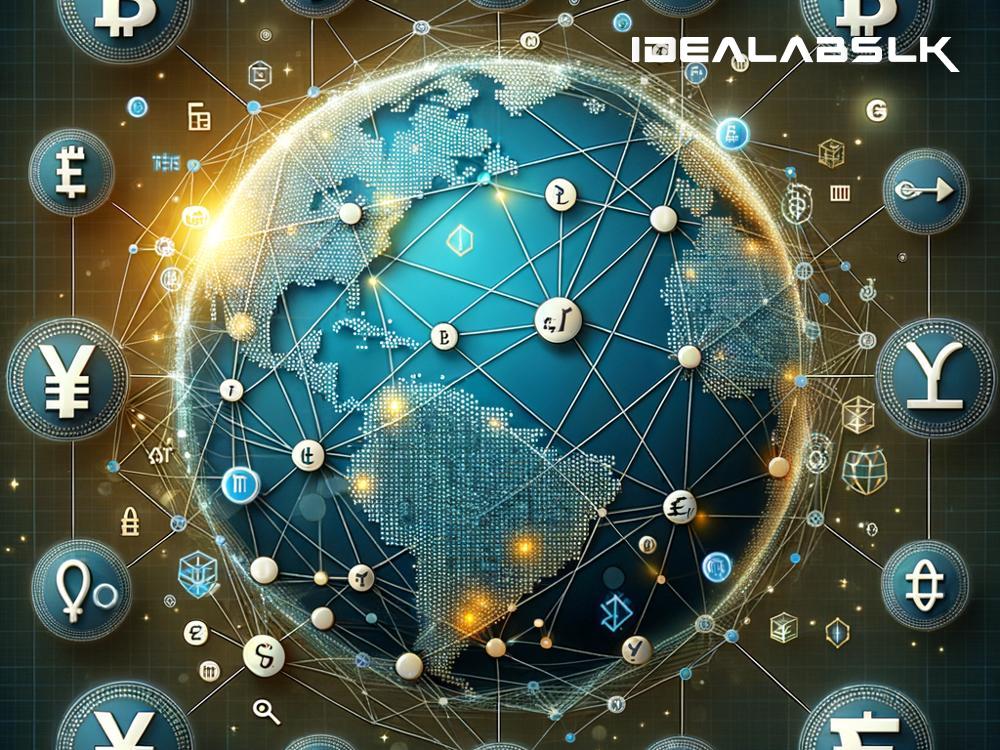Blockchain for Real Estate: Simplifying Cross-Border Transactions with Cryptocurrency
In today’s fast-paced world, where technology touches every aspect of our lives, real estate is also getting a digital makeover, thanks to the advent of blockchain and cryptocurrencies. The combination of these two technologies is revolutionizing the way people can buy and sell properties across borders, making the entire process smoother, faster, and more accessible.
Breaking Down the Basics
At its core, blockchain is a type of database that stores information in a way that makes it almost impossible to hack or cheat the system. Think of it as a digital ledger that records transactions in a secure, transparent, and tamper-proof manner. Cryptocurrency, on the other hand, is digital or virtual money that takes the form of tokens or "coins," with Bitcoin being the most well-known example.
The magic happens when blockchain technology is applied to real estate transactions, especially those involving buyers and sellers from different countries. Traditionally, such cross-border transactions have been fraught with challenges, including long waiting times for funds to clear, high fees, and the risk of fraud. Blockchain and cryptocurrency can address many of these issues head-on.
Unlocking New Possibilities in Real Estate
-
Speed and Efficiency: Blockchain enables instant verification of transactions without the need for intermediaries like banks or lawyers. This not only cuts down on time but also reduces transaction costs significantly. Imagine being able to complete a property purchase in another country within minutes, rather than days or weeks.
-
Transparency and Security: Every transaction on the blockchain is recorded and easy to trace, yet highly secure and private. This means both buyers and sellers can have peace of mind, knowing that their transaction is safe from tampering and fraud. In a cross-border context, this transparency is invaluable.
-
Accessibility and Inclusion: Cryptocurrencies don't care about borders. They can be accessed by anyone with an internet connection, opening up international real estate markets to a broader audience. This is particularly significant for investors from countries with unstable currencies or restrictive capital controls, as it offers them a new avenue to invest in stable, profitable real estate markets abroad.
-
Tokenization: This is a process where real estate properties, or shares of them, are turned into digital tokens on the blockchain. It allows for the buying and selling of these tokens much like stocks. This means that investors can own a piece of a property on the other side of the world without needing to buy the whole thing, lowering the barrier to entry for real estate investment.
Real-World Applications
Several startups and established companies are already leveraging blockchain and cryptocurrency to facilitate cross-border real estate transactions. For instance, some platforms allow sellers to list their properties online, and buyers can then purchase these properties using Bitcoin or other cryptocurrencies. Other platforms focus on the tokenization of properties, giving small investors a chance to own a piece of real estate in different parts of the world.
Navigating Challenges
While the promise of blockchain for cross-border real estate transactions is immense, there are still hurdles to overcome. Regulatory issues are at the forefront, as governments and financial institutions are still figuring out how to deal with cryptocurrencies and blockchain transactions. Additionally, there's the need for widespread adoption and trust in these new technologies amongst the general public and within the real estate industry.
Looking Ahead
The integration of blockchain and cryptocurrency in cross-border real estate transactions is still in its early stages, but the potential it holds is undeniable. As these technologies mature and become more mainstream, we can expect them to fundamentally change the way we think about and engage with real estate on a global scale.
Imagine a future where buying a beach house in Spain or an apartment in Tokyo is as simple as clicking a button, without the need to navigate the complex web of traditional banking and legal systems. This future is not as far off as it may seem, thanks to the transformative power of blockchain and cryptocurrency in the real estate domain. As we move forward, it will be fascinating to watch how these digital tools break down barriers and open up the world's real estate markets to a global audience.

